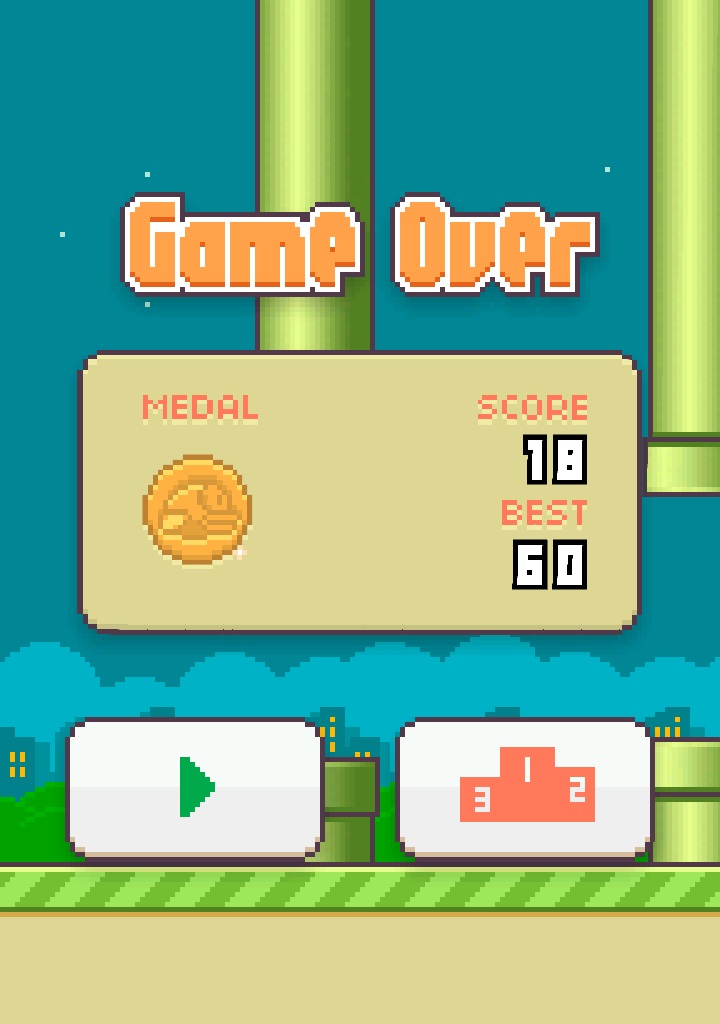
By now, you’ve probably heard that Flappy Bird has left this world, pulled from the iOS App Store and Google Play by its creator Dong Nguyen for mysterious reasons. If you haven’t downloaded the game already, your only options are piracy and eBay.
Do you have to play Flappy Bird? Not really, but those who did should appreciate what the game brought us in its limited time on Earth.
Flappy Bird is as brutally difficult as it is simple and addictive, but none of those qualities alone are what make the game praiseworthy. The thing to appreciate most about Flappy Bird is its purity.
There are three basic rules that drive Flappy Bird:
Other endless-style games may seem simple, but the rules often become more complex.
The classic Helicopter Game, for example, makes you account for momentum. The faster the free-fall, the longer you must hold the button down to pull out of it. This adds an element of planning, as you must fly steadily and bring yourself back to center-screen when possible to avoid being trapped.
No such planning is required with Flappy Bird. You can only see as far as the next pipe, and there’s always just enough space to position yourself for the next opening. While some people have criticized Flappy Bird for being in portrait orientation, being able to see farther ahead in landscape view would only be a distraction. (It’d also be less comfortable to play while holding the phone one-handed.)
Flappy Bird also differs from many similar games in that it doesn’t become harder over time, either through faster speeds or reduced distance between pipes. You’re being challenged from the beginning, and you could theoretically play it forever without hitting an impossible situation. The closest you get to a difficulty spike is when two pipes are set far apart, vertically, but because you don’t have to plan your moves ahead, you’re never really stuck.
All of this boils down to a game of precision and perseverance. The trick with Flappy Bird is to get as close to the bottom pipe as you can before tapping the screen. If you can time that tap just right, every time, there’s no reason you can’t get a hundred or even a thousand points. If you fail, you only have yourself to blame.
Perhaps you dislike Flappy Bird for being too simple, for capitalizing on a vaguely Mario-like aesthetic, or just for being too darned popular. But if you can somehow seek the game out post-app store, it remains an example of straightforward, honest game design that respects the player’s time. At least we have have the rest of .Gears Studios’ catalog to play with.
MORE: The History of Video Game Consoles – Full
More Must-Reads from TIME
- Cybersecurity Experts Are Sounding the Alarm on DOGE
- Meet the 2025 Women of the Year
- The Harsh Truth About Disability Inclusion
- Why Do More Young Adults Have Cancer?
- Colman Domingo Leads With Radical Love
- How to Get Better at Doing Things Alone
- Michelle Zauner Stares Down the Darkness
Contact us at letters@time.com